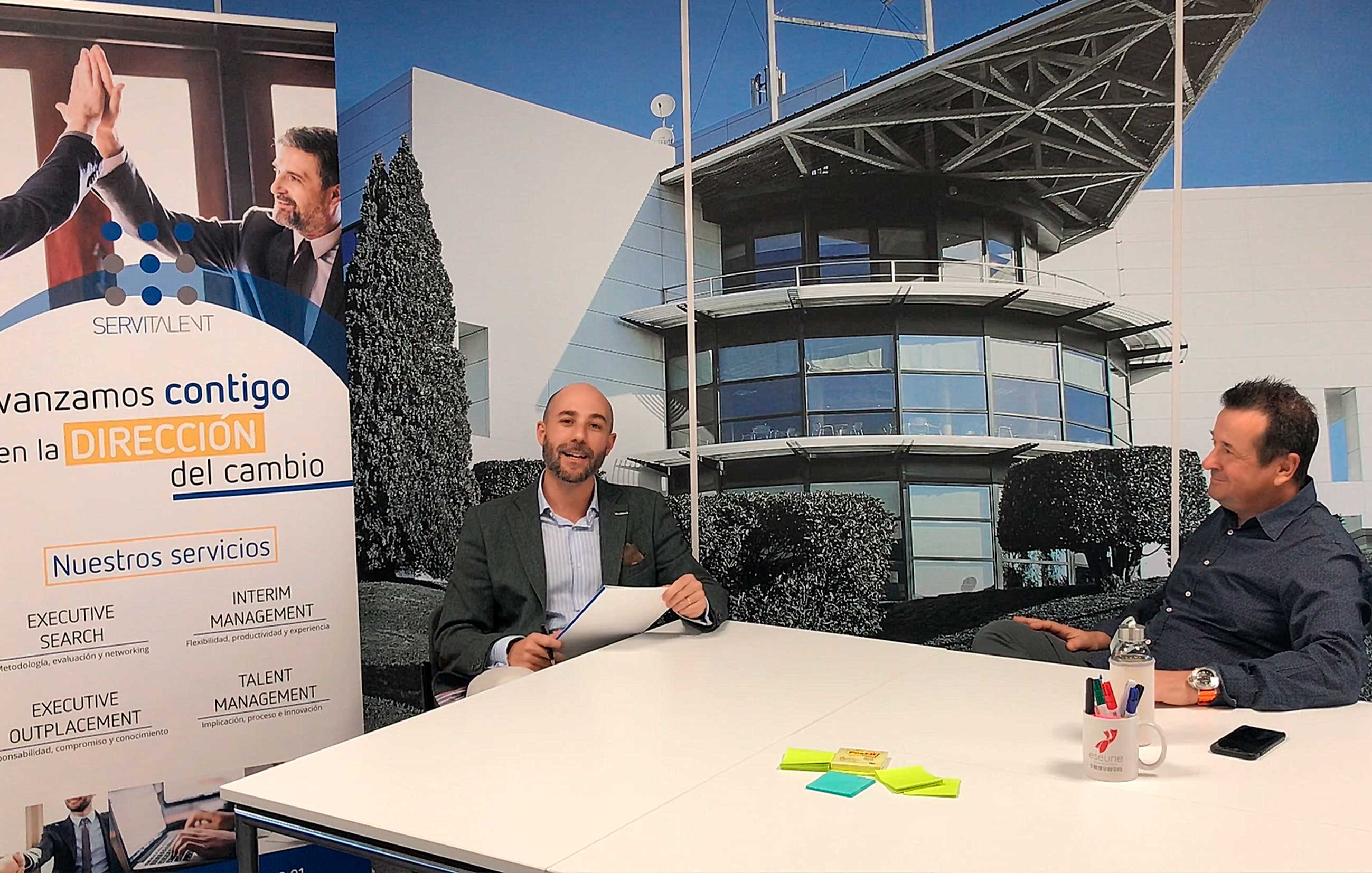The Role of Business Schools and Senior Talent in VUCA Environments
In Servitalent, as a company specialized in executives and talent management, we receive more and more concerns from our clients about talent management in such changing and uncertain environments as the current one. That is why our Associate Director Javier Conde, interviews Enrique de la Rica, Founder and CEO of ESEUNE Business School. A leading business school locally and internationally, to discuss the most common concerns about senior talent management and the role of business schools in VUCA environments.
In this interview, we start by asking Enrique to tell us a little more about himself:
- I am an entrepreneur concerned about innovation, change and people development. I believe that all phenomena of adaptation to change, reinvention of the future and materialization of dreams, have an important human component, therefore I have developed my professional career both, as a CEO and as an entrepreneur, in projects that are related to human development.
- Today ESEUNE Business School is dedicated to the training of managers, the school was founded in Bilbao in 1992, but currently trains managers in different countries around the world.
Enrique, what role do you see Business Schools playing today in this new environment?
- We live in an environment characterized not so much by change, but by the acceleration of change, and this has perhaps provoked in the business world and in managers, the need to be continually enhancing skills and acquiring new capabilities. This concept of "Longlife learning", which has been talked about for some time, has been internalized by managers and therefore business schools accompany them in this process of continuous training to adapt their profiles to the new challenges that both parties have to face.
- I believe that we are at the beginning of the most exciting decade of recent times because this decade will generate probably unsuspected changes and we, in business schools, sense where they will go (the rise of artificial intelligence, the emergence of metaverses, the human arriving on Mars, etc.). We are on the verge of a major transformation, not only of business models and people, but by extension, of society as a whole.
Looking at this environment and the evolution of professionals, what do you think about professional Reskilling?
- We have defined it before, it is a scenario of change and I believe that precisely the managers and the organizations themselves are pivoting to "Reskilling", that is to say, the need to be continuously pivoting. Few people think that they are going to develop their career in a specific area of the organization independently, since both organizations and jobs are more transversal.
- But as Heraclitus said "the only constant in organizations will be change" and that is why the continuous adaptation of skills in this changing environment is the priority of managers.
This transversality draws our attention in Servitalent since we work a lot with senior and/or Executive talent so, what difficulties do you think that senior talent is having, has had or will have when it comes to virtual learning?
- In ESEUNE we perceive it clearly because we approach our learning programs to professionals from 25 to 55 years old, a wide age range that covers several generations.
- We have to work with all of them and there is a notable difference. While Generation Z sees virtual training as something natural and as something intrinsic to their lifelong learning, Generation X (those senior managers) still see it as something that appeared at a certain point in their lives, 25 years ago, and they are always making a comparison (advantages, disadvantages and differential aspects). This does not happen with a person of 24 or 25 years old, they do not differentiate between the virtual and face-to-face concept because for this person everything is training.
- Therefore, it is more a question of a change of paradigm, of mentality, leaving aside the idea that virtual training was born as a complement to face-to-face.
- Virtual learning has a great growth and development, today it is the predominant one in most academic institutions in the world.
- 85% of ESEUNE students receive online learning all over the world, seeing the benefits such as flexibility, adaptation to their agenda, possibilities of conciliation, time use, etc.
When talking about internationalization, the idea of the figure of an interim manager who can adapt to it arises, what competencies do you think this type of professional should have?
- Competencies of any manager, such as the ability to apply his or her experience in the environment, place or organization where he or she can contribute the most value and at the same time obtain the most value as a manager. Adaptation to change is an important and powerful characteristic. Personally, what I think we should emphasize is knowing how to interpret and read the culture of each organization. Although you have the experience, each organization, each human group is different and that empathic ability to read and interpret the emotions of each group is very relevant.
- In addition, you must have a certain background, mainly derived from practical experience. That is to go beyond knowledge and move on to practice, something that business schools can provide to these professionals and is to continue to evolve these management skills (those skills of empathy, communication, conflict negotiation, understanding and interpreting people quickly without spending months).
In Servitalent, we are committed to networking between professionals and companies. In your opinion, would you say that there is a fruitful nature of networking, both for the person and the professional, once the training is done with you?
- Relational skills are absolutely important and fortunately also the existence of platforms that can help you to work effectively in the networking that you generate. Relational capital continues to be a fundamental element and is therefore one of the strong points that a business school provides, since in addition to developing knowledge, it gives you the opportunity to establish first-class networking with colleagues, professors and alumni.
"All business schools have this in mind, to train managers to respond in any place, country or culture, and also enrich the people who study with us with cultural experiences from other fields than their own ..... Therefore, we are global in our mentality, always with a local spirit, transmitting to the world the know-how of our companies and our management models." - Enrique de la Rica





